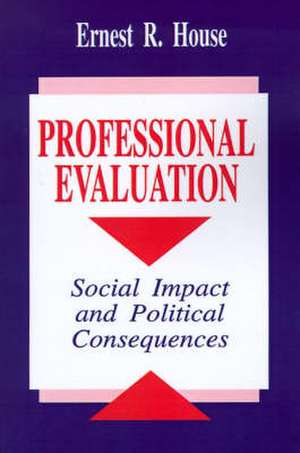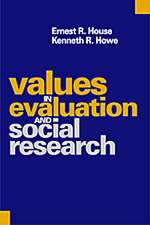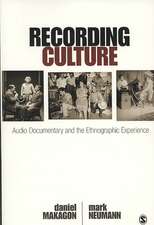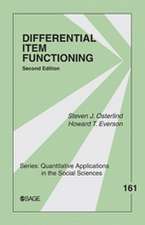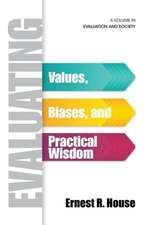Professional Evaluation: Social Impact and Political Consequences
Autor Ernest R. Houseen Limba Engleză Paperback – 22 apr 1993
Preț: 790.02 lei
Preț vechi: 963.44 lei
-18% Nou
Puncte Express: 1185
Preț estimativ în valută:
151.18€ • 161.65$ • 126.04£
151.18€ • 161.65$ • 126.04£
Carte tipărită la comandă
Livrare economică 17 aprilie-01 mai
Preluare comenzi: 021 569.72.76
Specificații
ISBN-13: 9780803949966
ISBN-10: 0803949960
Pagini: 215
Dimensiuni: 152 x 229 x 15 mm
Greutate: 0.36 kg
Ediția:1
Editura: SAGE Publications
Colecția Sage Publications, Inc
Locul publicării:Thousand Oaks, United States
ISBN-10: 0803949960
Pagini: 215
Dimensiuni: 152 x 229 x 15 mm
Greutate: 0.36 kg
Ediția:1
Editura: SAGE Publications
Colecția Sage Publications, Inc
Locul publicării:Thousand Oaks, United States
Cuprins
Introduction
Evaluation in Advanced Capitalist Society
Trends
Evaluation as an Institution and Profession
Government and Evaluation
Higher Education
An Example
Evaluation as a Discipline
The Legacy of US Social Science
Social Justice
Methodology and Justice
Evaluation in Multicultural Societies
Professional Ethics
Evaluation in Advanced Capitalist Society
Trends
Evaluation as an Institution and Profession
Government and Evaluation
Higher Education
An Example
Evaluation as a Discipline
The Legacy of US Social Science
Social Justice
Methodology and Justice
Evaluation in Multicultural Societies
Professional Ethics
Descriere
Why do we have evaluation? Is evaluation a discipline? How much impact does evaluation have on government, education or politics? Can social problems, such as poverty, be solved by the application of resources and intelligence? By exploring how evaluation has evolved as a discipline, science and profession, Ernest R House assesses the impact of evaluation on modern societies and the issues that this impact raises for evaluators. Issues addressed include: pluralism versus managerialism; quantitative versus qualitative methodologies; the purpose of education for knowledge production versus education for professions; and clientism and multicultural concerns.
